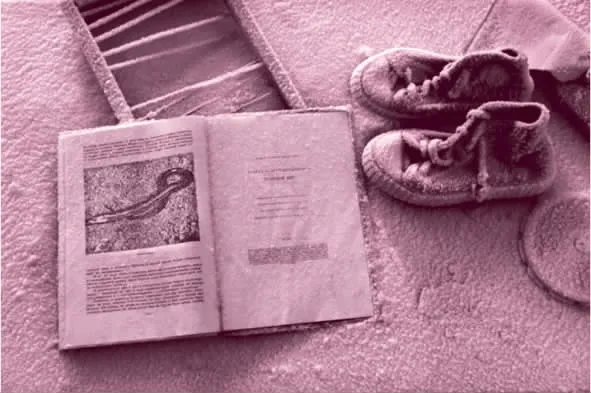In Russia's far north,legends and lives are frozen in time
河南 孫玉勤


?
難詞探意
1. tundra /?t?ndr?/ n. 凍原;苔原
2. crave /kre?v/ v. 渴望
3. meteorological /?mi?ti?r??l?d??kl/ adj. 氣象的
4. heyday /?he?de?/ n. 全盛時(shí)期
People say that once you have the Arctic in your system,it will always be calling you. I spent my childhood running about thetundraand watching the Northern Lights as I walked to school in the polar night. I left my hometown of Tiksi, a remote seaport on the shore of Russia's Laptev Sea, years ago to live in big cities and different countries. But the Arctic has been calling me back. Icraveits isolation and slower pace of life. In this frozen northern landscape, my imagination flies like the wind, with no obstacles. Every object becomes symbolic, every shade of color meaningful. I am my real self only when I am here.
One month I lived with a young couple, Evgenia Kostikova and Ivan Sivkov, who were collectingmeteorologicaldata at another frozen edge of Russia. Kostikova had asked her beloved Sivkov to join her up north after their first year together in a Siberian city. They monitored the weather, chopped wood, cooked, tended the lighthouse, and looked after each other. For medical help they relied only on a distant helicopter, but it could be delayed for weeks in rough weather. Kostikova called her mother almost every day, but as there was little news to report, she'd often ask her mother to leave the phone on speaker and to go about her housework. Kostikova would just sit and listen to the sounds of her faraway home.

The dream of this land's greatness is covered in frost in Dikson, on the shore of the Kara Sea.During itsheydayin the 1980s it was called the capital of the Russian Arctic, but since the end of the USSR it has become almost a ghost town.Perhaps there will be new towns as the region warms,but it pains me to see the failure of human effort on such a scale.
During my first weeks I was disappointed with the photos I shot in Dikson's endless darkness, but then the aurora (北極光) suddenly exploded in the sky, coloring everything for several hours. Cast in a green light, a monument to soldiers looked like Frankenstein's monster, who, after all, at the end of Mary Shelley's book, escaped to the isolation of the Arctic. Then the aurora faded, and the town started to slowly disappear back into darkness until finally it was invisible.
Reading
Check
1. What made the author come back to the Arctic?
A. The busy life in big cities.
B. The high living expenses in developed countries.
C. The isolation and slow pace of life in the Arctic.
D. The calling from the author's family members.
2. Why did Evgenia Kostikova and Ivan Sivkov go to the Arctic?
A. To monitor the weather.
B. To enjoy their honeymoon.
C. To experience a different life.
D. To provide medical help for those in need.
3. How did the author feel about Dikson in the beginning?
A. Delighted. B. Unexpected. C. Painful. D. Upset.
Language
Study
熟詞生義
Perhaps there will be new towns as the region warms, but itpainsme to see the failure of human effort on such a scale.
pain v. 使痛苦
e.g. It pains me to see you like this.

